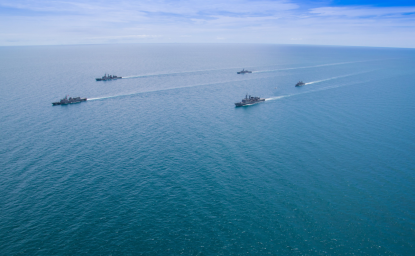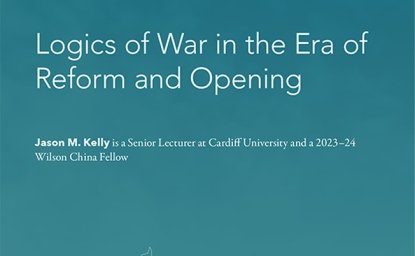#25 Political Participation and the Revolution: Lessons from Rural Peru

By Susan C. Bourque and Kay B. Warren
This paper was presented at the November 2-4, 1978 Workshop on "The Peruvian Experiment Reconsidered" organized by the Latin American Program of the Woodrow Wilson International Center for Scholars.
Summary
This paper assesses the interplay between the military government's strategies for restructuring popular participation and the responses of local citizens to those efforts. The evidence for this analysis is drawn from three marginated sierra districts composed of peasant communities and a stock-raising hacienda (which was transofrmed into an agrarian cooperative). The authors examine the nature of rural change with particular emphasis on the development of network strategies by local populations to broaden their opetions in the face of the changing circumstances of rural life. They find that on the one hand the military's reforms were limited by long-term patterns of social and economic change such as increased coastal-sierra contact and migration. On the other hand the military government's implementation efforts, particularly the work of SINAMOS and Ministry of aGriculture extension agents, adversely affected the attempted reforms. The military itself could not replace the network systems, and the agents it selected to provide this linkage were viewed as inadequate by local populations. The authors argue that the sucess and failure of military efforts at reorganizing local-level participation were directly related to the perceived impact of proposed policies on the network strategies previously formulated by local populations to foster their own development.

Latin America Program
The Wilson Center’s prestigious Latin America Program provides non-partisan expertise to a broad community of decision makers in the United States and Latin America on critical policy issues facing the Hemisphere. The Program provides insightful and actionable research for policymakers, private sector leaders, journalists, and public intellectuals in the United States and Latin America. To bridge the gap between scholarship and policy action, it fosters new inquiry, sponsors high-level public and private meetings among multiple stakeholders, and explores policy options to improve outcomes for citizens throughout the Americas. Drawing on the Wilson Center’s strength as the nation’s key non-partisan policy forum, the Program serves as a trusted source of analysis and a vital point of contact between the worlds of scholarship and action. Read more

Explore More
Browse Insights & Analysis
Latin American Program Working Paper Series (1-50)

Southeast Asia Maritime Security and Indo-Pacific Strategic Competition

La inspiradora historia del soldado y deportista Juan José Florián en Tres Respuestas
